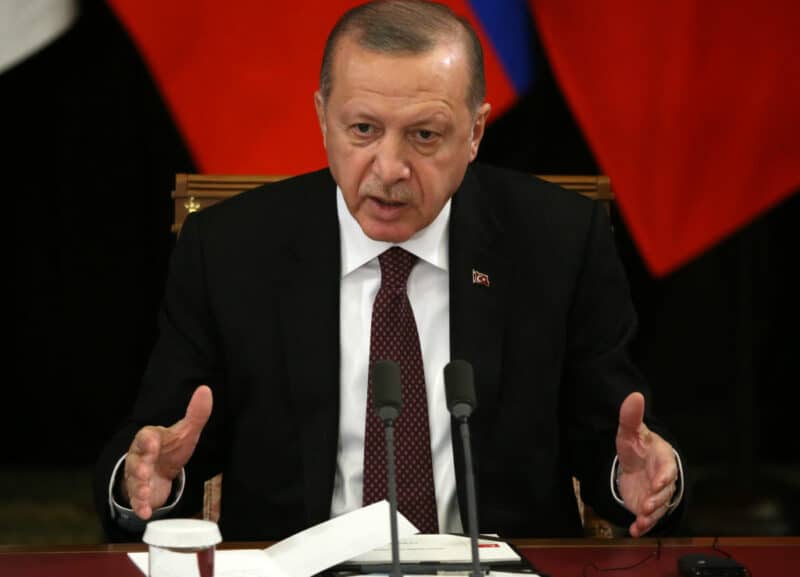For more than a week, Syrian forces loyal to Bashar Al Assad, supported by Russian air forces, began an offensive in the direction of the city of Idlib, with the aim of regaining control of this city still in the hands of the pro-Turkish Islamic paramilitary forces. But this offensive is not to the taste of Turkish President RT Erdogan, who fears a new influx of refugees. This is the reason why the latter now threatens Syria and its Russian ally with a new intervention in northern Syria, aimed at ending the Damascus offensive.
The cordial understanding between Ankara and Moscow seems more and more difficult to maintain in Syria. Indeed, the allies of the two camps, the pro-Turkish Islamic militias on the one hand, and the regular forces of the Damascus regime, on the other, risk to find themselves in contact while the Syrian troops have started, for more of one week, an offensive towards the north aiming to recover the city of Idlib, main Syrian city in the north-west of Syria, and strategic communication node for the control of all the north of the country. Above all, Ankara, through the voice of its president, warned Damascus and Moscow of a possible new military operation in northern Syria if the Syrian offensive did not cease quickly. Indeed, the Turkish authorities fear to see a new wave of refugees heading towards its territory, while it already hosts more than 3,6 million of them since the beginning of the conflicts.

But beyond the refugee argument, Ankara and Moscow are in fact engaged in a standoff for control of northern Syria, after the status quo agreement signed between the two presidents in 2017 in Sochi. The Turkish authorities accuse Moscow of not respecting the terms of the agreement, while for its part, Moscow justifies military actions to stop attacks from the north of Syria, and having targeted the Syrian forces as the Russian forces deployed on the air base of Hmeimim. In both cases, there is an obvious effort to make the narrative stick with each other's geopolitical objectives, both aiming to get their hands on northern Syria. The points of friction between Moscow and Ankara have been revealing themselves in recent weeks, whether on the Syrian dossier, or the Libyan dossier, where the two capitals support opposing camps. As such, the stopover of the Russian frigate Admiral Essen, belonging to the Black Sea fleet, in the Cypriot port of Limassol, yet only a stone's throw from the Syrian port of Latakia, has certainly not gone unnoticed in the Turkish capital.
Ankara actually finds itself trapped by the consequences of its previous offensive, which it led in the fall of 2019 against the Kurds of the YPG in northern Syria. By causing the withdrawal of Kurdish forces, and the disengagement of their European allies, Ankara has allowed pro-Turkish paramilitary forces to retain control of the region around Idlib. However, while the Kurds were careful not to provoke Moscow, these forces, partly controlled from Ankara, regularly carry out operations against the forces of the Syrian regime, and, it seems, against the Russian forces. Consequently, there is no longer a “buffer force” capable of initiating a de-escalation in the region, and the intervention of Damascus, and of its Russian ally, was therefore more than foreseeable.

It remains to be seen, from now on, how the two leaders decide to act in the days to come. It would seem surprising that the Syrian forces suspend their offensive in order to recover Idlib, as the city plays such a strategic role in the region. Therefore, after the declarations that President Erdogan has just made, it is likely that, for his part, Ankara will also launch a military operation, with the same destination. That said, twice already, the Russian presidents and stuff have been able to negotiate de-escalation clauses following severe tensions, especially when in 2015, Turkish F16s had shot down a Russian Su-24. Be that as it may, it is increasingly clear that the apparent Russo-Turkish agreement is above all an agreement of circumstance, which is probably not destined to last.
Download the article in pdf format

